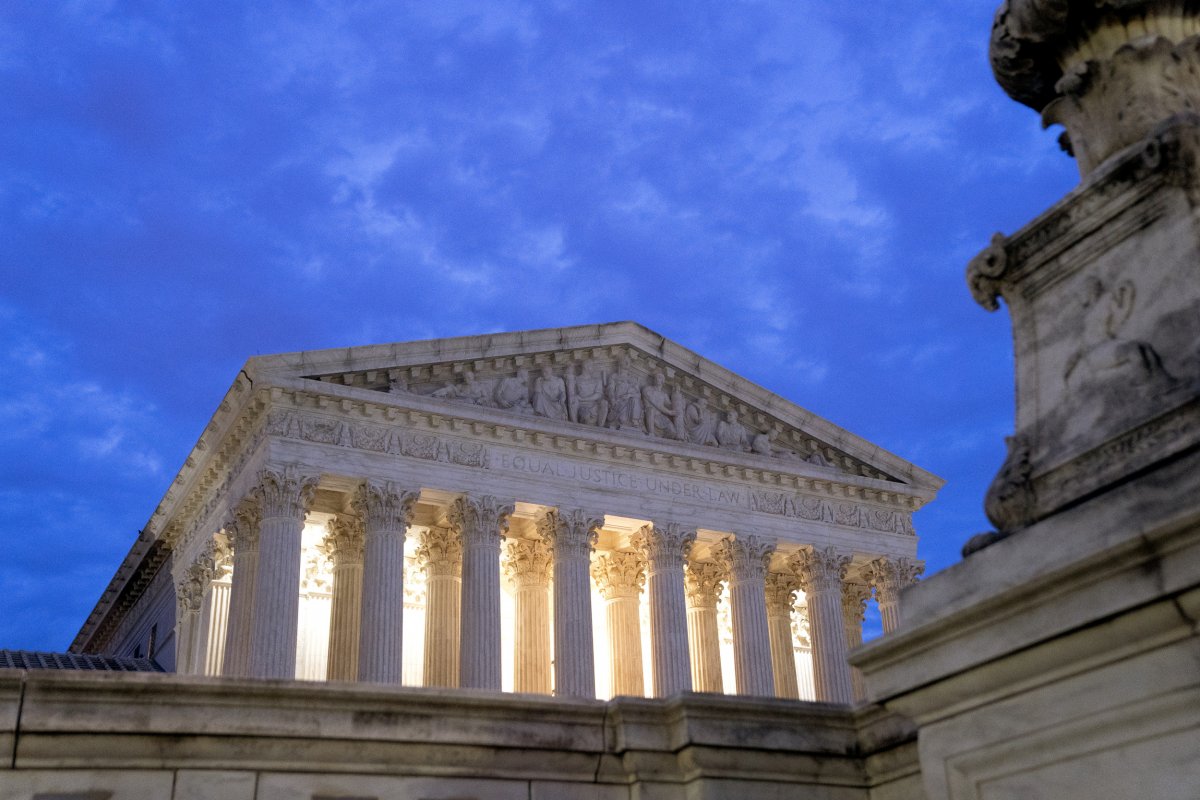The Supreme Court will hear one of the most important cases of this year's term—and most Americans have never heard of it. Biden v. Texas centers on the state of Texas' attempt to block the Biden administration from unwinding a cruel Trump-era immigration policy—"Remain in Mexico," also known as the Migrant Protection Protocols. The human consequences in this case could not be more compelling. Remain in Mexico has been a horror show, both in terms of its impact on the more than 100,000 humans stranded in dangerous conditions after they came to the border seeking safety and its gutting of our asylum law. What is at stake in terms of legal precedent is frankly mind-blowing.
Stripping away all of the legalese, this case fundamentally asks whether a new president has the ability to undo the discretionary policies of their predecessor. The answer, of course, must be yes—it is the cornerstone of how our government has functioned for centuries—but the lower court decisions now on review at the Supreme Court have failed to acknowledge this fundamental concept.
President Joe Biden campaigned on ending the shameful Remain in Mexico program, and after a careful review, his secretary of Homeland Security did just that. Texas challenged that termination in court, securing a ruling from a Trump-appointed judge that required the Biden administration to take "good faith efforts" to put Remain in Mexico back in place until it could show that it had ended the program properly according to the Administrative Procedure Act. The district court acted far outside of its powers in entering this order, yet, disturbingly, that extreme order was affirmed by the Fifth Circuit Court of Appeals.
When former President Donald Trump abruptly ended Deferred Action for Children Arrivals (DACA)—which protected hundreds of thousands of undocumented young people—I was one of the attorneys in the DACA litigation that went to the Supreme Court. In that case, those of us challenging the termination of DACA always acknowledged the fundamental principle that a new president can end a discretionary program of a past president. Our legal objection was that a new president must follow the Administrative Procedure Act requirements for how that termination happens. And as the DACA recipients' victory at the Supreme Court showed, we proved that Trump had not.

Even if you believed the district court was correct that the first effort to end Remain in Mexico did not satisfy the legal requirements to end a discretionary program, where things really went into legal disarray was the Fifth Circuit's refusal to even consider the Biden administration's second—very diligent—effort to end the program. While that court may not have liked that the Biden administration again reached the conclusion to terminate the program, it was duty-bound to evaluate whether they had done so properly, but the Fifth Circuit refused.
Individual judges may not like the policy choices of the Biden administration, but it is not their job to weigh in on that policy debate. Their job is to consider whether the Biden administration ended Remain in Mexico in accordance with the law. The Supreme Court now has a sober responsibility to set this straight as it hears the Biden v. Texas case.
Any presidential administration should have the freedom to implement its own policies—that is why advocates continue to urgently demand that the Biden administration end this cruel policy once and for all. This is how our democracy is supposed to work: Voters elect a president whose views they support so that person's decisions will guide the government. This is particularly true when it comes to discretionary actions or programs like Remain in Mexico.
How the Supreme Court rules on Biden v. Texas will have a dramatic impact on the system meant to welcome those who come to the border in search of safety, and could very well hamstring any future president's ability to implement their national security and foreign policy agendas. You do not need to want to see the end of Remain in Mexico, or even care about immigration issues at all, to be deeply concerned about the outcome in this case. Anyone who cares about the ability of the president to enact the voters' will—a president of any party—should be watching this case closely.
Karen Tumlin is the founder and director of Justice Action Center, a non-profit focused on combining the power of litigation and storytelling to advocate for unseen and overlooked issues faced by immigrants. The Justice Action Center filed an amicus brief in Biden v. Texas that will be heard tomorrow .
The views expressed in this article are the writer's own.
Uncommon Knowledge
Newsweek is committed to challenging conventional wisdom and finding connections in the search for common ground.
Newsweek is committed to challenging conventional wisdom and finding connections in the search for common ground.
About the writer
To read how Newsweek uses AI as a newsroom tool, Click here.








